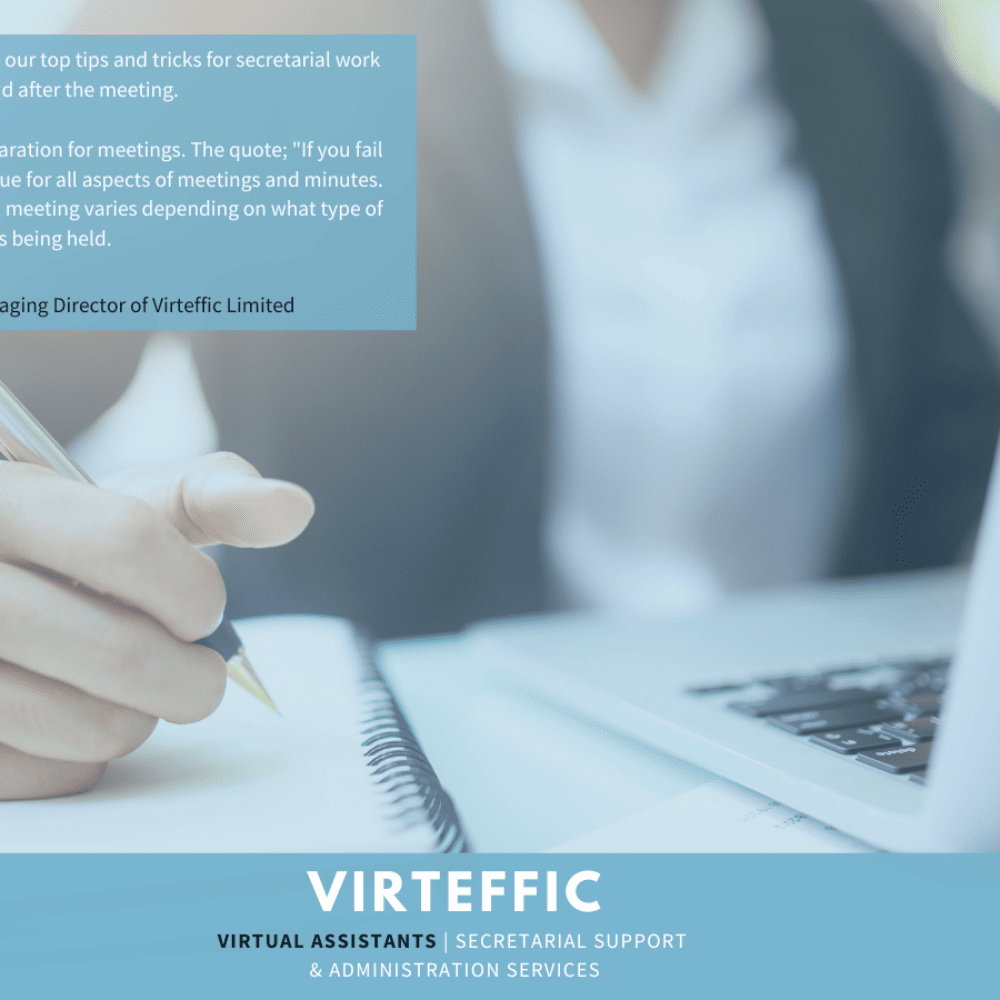The quote; if you fail to prepare, you prepare to fail’ holds true for all aspects of meetings and minutes The level of effort required to convene a meeting varies depending on what type of meeting is being held.
ESTABLISH WHAT SORT OF MEETING IS BEING HELD.
Meetings are an integral part of professional life, and taking minutes of every meeting is essential. The first step when preparing the meeting invite and relevant documentation is to consider what type of meeting is being held.
There are various types of meetings that may be held. Examples: Board meeting (ad-hoc, monthly, or quarterly), Committee meeting (what type), Annual General Meeting of Members, Extraordinary General Meeting etc. We will concentrate on a meeting of the directors for the purposes of this text
WHO NEEDS TO ATTEND THE MEETING?
Once you have established what type of meeting is to be held and who is to attend, you will need to circulate invites for the meeting and monitor responses. This will ensure the relevant people are available, and the meeting will be quorate.
It may seem obvious that all board members should be invited to all board meetings. The company secretary and/or minute writer (who may be external) is another key invite. Other key persons and subject matter experts may be invited to some meetings. Attendance at meetings is largely driven by the purpose of the meeting and the meeting agenda. Knowing what you want to get out of the meeting is the first step to knowing who to invite to it.
TOP TIP
• For regular meetings, there should be an attendance register with a record of attendees from previous meetings.
• It is also advantageous to keep a record of all the contact details (particularly for external attendees, such as NEDs, external minute takers etc).
QUORUM REQUIREMENTS
A quorum is the minimum number of directors that must be present at any of its meetings to make the proceedings of that meeting valid. Please note that a quorum must be present to convene a meeting.
Refer to the Articles of Association or the relevant statutory documents of the organisation. The information will generally be in the section entitled “Proceedings of Directors” or something similar.
TOP TIP
• Always remember to check if there have been any resolutions passed by the Board subsequent to the Articles having been agreed in relation to the notice and quorum requirements.
• There may be different requirements for the quorum needed to transact different types of business, so you will need to consider the business to be covered. We will also cover this later in the module when looking at the agenda.
• When a meeting is held by telephone or via video conference, such as teams – remember to check the articles to make sure that the person attending remotely is counted towards the quorum.
• Consider time zones when scheduling meetings, as attendees may dial in from all over the globe, and no one wants to attend a meeting at 4am if they can help!
MEETING ARRANGEMENTS
Remember to book a suitable venue. This is often the in-house boardroom, but it could also be an external venue.
TOP TIP
• When booking a venue for the meeting, you will need to consider the number of attendees and whether your invitations will need to include audio and/or video attendance information.
• If you need to arrange catering, you should consider any dietary requirements.
• As a minute taker – it is in your best interest that the room is fit for purpose so that you can hear all participants without distractions, so the noise level is an important factor to consider.
DUE NOTICE
Notice must be given in writing to the Board that a meeting is to be held, including the purpose of the meeting (consider the inclusion of the agenda), the date, time and location.
WHAT SHOULD BE INCLUDED ON THE AGENDA?
List the name of the entity, the attendees and their roles, time (and time zones if applicable), date, and location.
TOP TIP
• Liaise with attendees to agree on scheduled dial-in times as early as possible and consider time zones where appropriate.
• Generally, agendas for recurring meetings will follow a regularly used format, so refer to the information available to you.
• You could use an agenda planner to consider regulatory requirements for different jurisdictions or entity types.
BOARD PACK AND NECESSARY PAPERS
You will need to ensure that all the necessary paperwork is in hand. We will cover this area as well as personal preparation for the minute taker in separate articles.
DO YOU WANT MORE TIPS & TRICKS REGARDING CORPORATE GOVERNANCE AND COMPANY SECRETARIAL MATTERS?
Visit our news & insights page on our website at virteffic.com, where we regularly share news, insights and guidance in key areas such as corporate governance, minutes and secretarial practices. We hope that this will inspire new ideas that could benefit your business.


